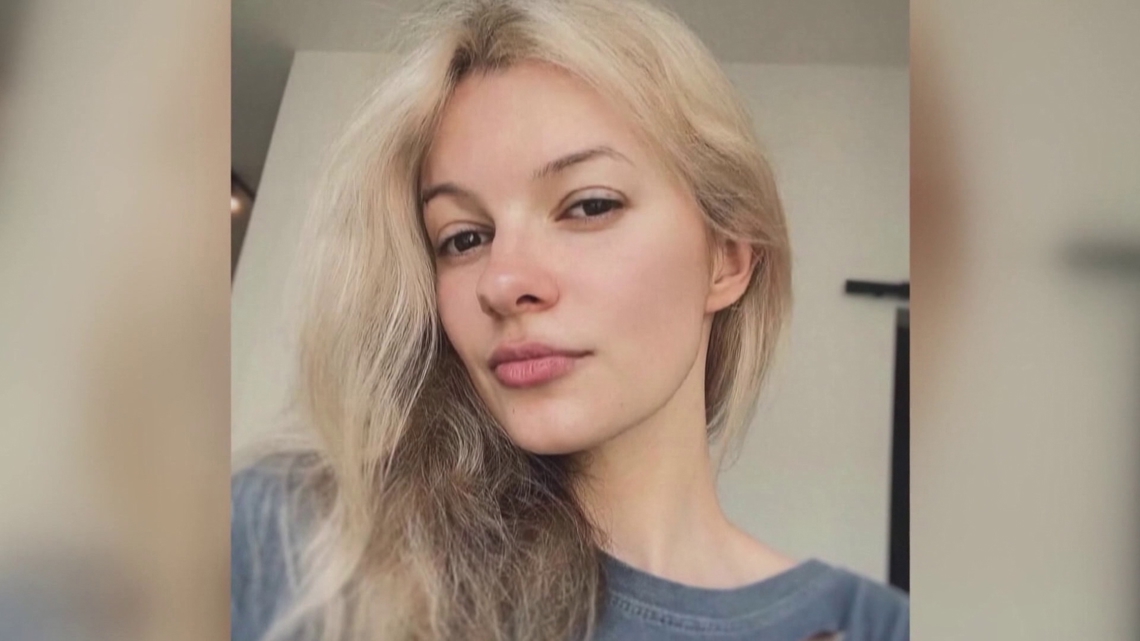The tragic death of 23-year-old Ukrainian refugee Iryna Zarutska in Charlotte, North Carolina, has deeply shaken her loved ones, the local community, and people far beyond. What began as a hopeful new chapter for a young woman fleeing the war in Ukraine ended in devastating loss on August 22, when she was killed during an unprovoked attack while riding a train.
Her story is not only about a life cut short but also about the larger questions it raises—about justice, public safety, and the challenges of balancing compassion with accountability.
A Journey of Hope Cut Short

Iryna Zarutska arrived in the United States in 2022 after fleeing the Russian invasion of Ukraine. She traveled with her mother, brother, and sister, seeking refuge and safety in Charlotte.
According to her obituary, Iryna had been working full-time at a local pizzeria while attending community college to improve her English. Friends described her as hardworking, kind, and determined to build a better future. She dreamed of a career, a home of her own, and the opportunity to live free from violence.
“She came here to find peace and safety, and instead her life was stolen,” her family wrote in a public statement.
A Community in Mourning

On the night of her death, Iryna texted her boyfriend, Stanislav “Stas” Nikulytsia, that she would “be home soon.” Moments later, tragedy struck. When Stas arrived at the station, he learned she had not survived.
The young man, who had been living with Iryna in Charlotte for the past year, has since shared his grief on social media. In one post, he shared a tender photo of the two of them smiling together, captioned only with a broken heart emoji. It was his first public acknowledgment of loss, and it resonated with thousands of others who followed the story.
His later messages reflected not just sorrow but also frustration at a system that had previously released the suspect involved in the case. Stas’s posts echoed a growing public debate about how courts handle repeat offenders and individuals struggling with mental illness.
The Justice System Under Scrutiny
Authorities arrested a 34-year-old man following the incident and charged him with murder. Reports later revealed that the suspect had a history of multiple arrests. Earlier in the year, he had been released on bail while facing other charges, a decision that has since fueled criticism and debate.
The Bail Reform Debate
The case has reignited conversations around bail reform in North Carolina and across the United States. Critics argue that releasing repeat offenders on bail, even with conditions, puts the public at risk. Supporters of reform emphasize that bail should not unfairly punish those who are poor, and that incarceration before trial should be used sparingly.
Iryna’s case highlights the tension between these two perspectives. Some community members argue that her death could have been prevented if stricter policies were in place, while others caution that one tragedy should not derail efforts to make the justice system more equitable.
The Role of Mental Health

Adding to the complexity, family members of the suspect have spoken publicly about his struggles with mental illness. They described him as having exhibited paranoid behavior and voiced concerns about his need for treatment long before the incident occurred.
This aspect of the case raises important questions about how the justice system handles individuals with severe psychiatric conditions. When family members seek help but encounter barriers to involuntary treatment, it can leave communities vulnerable and those individuals untreated.
Experts say cases like this underscore the need for better coordination between the criminal justice system and mental health services. Without adequate support structures, individuals may cycle repeatedly through courts and jails without receiving the care they need.
Political and Public Response

Local leaders and state officials have also weighed in on the tragedy. Some lawmakers have pointed to Iryna’s case as an example of systemic failures that require urgent reform. They argue that stricter safeguards are necessary to prevent repeat offenders from harming others.
Others emphasize the importance of balanced solutions that account for both public safety and fairness. Advocates stress that while tragic cases must be addressed, broad changes should be informed by data and designed to improve outcomes for all communities.
Remembering Iryna
Amid the policy debates, friends and family have urged people to remember the heart of the story: a young woman full of promise whose life ended far too soon.
Iryna’s loved ones describe her as vibrant, ambitious, and compassionate. She worked hard to support herself and her family while pursuing her education. She loved spending time with Stas, with whom she shared dreams of building a future together.
“She was deeply loved by her family and friends,” her family’s attorney said in a statement. “She came here looking for safety, and instead she became the victim of violence.”
A Symbol of Resilience and Loss
Iryna’s story resonates beyond Charlotte because it represents both resilience and heartbreak. She survived the dangers of war only to face tragedy in the place she sought refuge. Her death has become a symbol of the struggles many refugees face as they rebuild their lives in new countries.
Her family’s grief has also drawn widespread sympathy, with community members and strangers alike donating to support them. Online memorials describe her as “a bright light” and “a reminder of how precious life is.”
What Comes Next
As the case moves through the courts, several issues remain unresolved:
-
Legal accountability: The trial will determine the suspect’s responsibility under the law.
-
Policy discussions: Lawmakers may introduce new proposals around bail reform and mental health intervention.
-
Community healing: Support for Iryna’s family and loved ones remains ongoing, with vigils and fundraisers held in her memory.
These steps will take time, but they reflect a community working through both grief and responsibility.
Lessons From the Tragedy
While no policy can undo what happened to Iryna, her story offers lessons for society:
-
Balancing safety and fairness: Bail systems must protect communities while ensuring justice remains equitable.
-
Mental health matters: Families should have better pathways to help loved ones before crises escalate.
-
Remember the human story: Beyond debates, the lives of victims and their families must remain central.
FAQs
Who was Iryna Zarutska?
She was a 23-year-old Ukrainian refugee who fled the war in 2022 and settled in Charlotte, North Carolina, where she worked and studied.
What happened to her?
She was killed in an unprovoked attack on August 22 while riding a train in Charlotte.
Who is her boyfriend?
Stanislav “Stas” Nikulytsia, 21, lived with her in Charlotte and has since shared his grief publicly.
Why is the justice system being criticized?
The suspect had been released earlier despite multiple prior arrests, prompting debate about bail reform and public safety.
How is her memory being honored?
Her family, friends, and community have held vigils, shared tributes, and launched fundraisers to support her loved ones.
Conclusion
The heartbreaking death of Iryna Zarutska has left her family and boyfriend devastated, while also igniting a wider debate about justice, safety, and responsibility. For Stas, his grief is personal and raw, expressed in simple images and words online. For the community, it is a reminder of the fragility of life and the importance of addressing systemic challenges with care.
Though Iryna’s life was tragically short, her story will not be forgotten. She stands as both a symbol of resilience—fleeing war to build a future in a new land—and of the urgent need for systems that truly protect those who seek safety.
